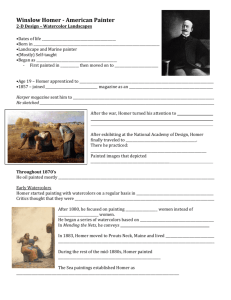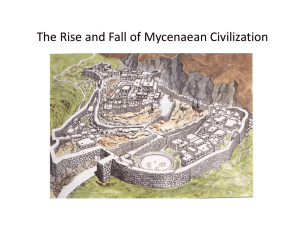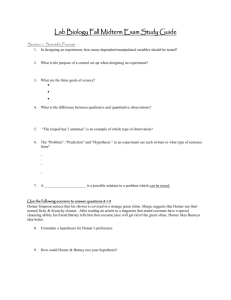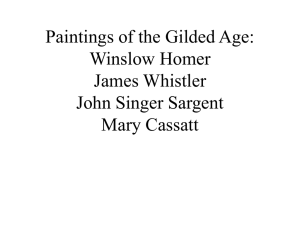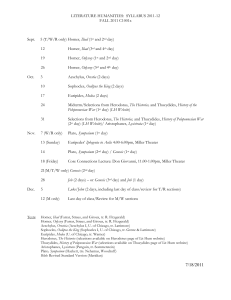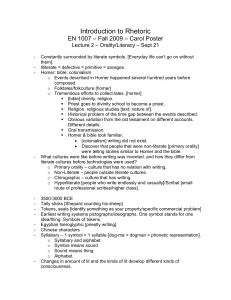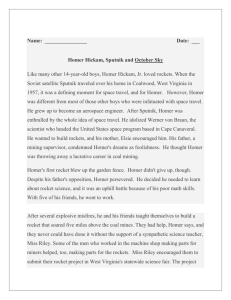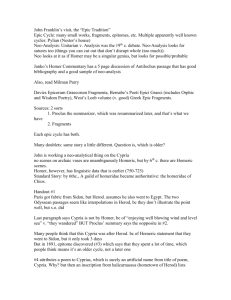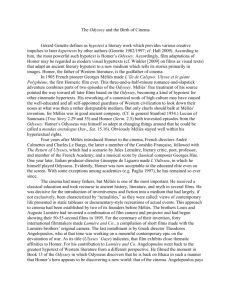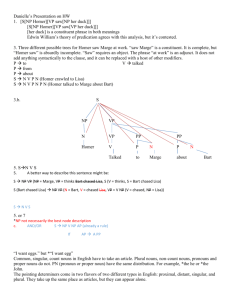Winslow Homer
advertisement
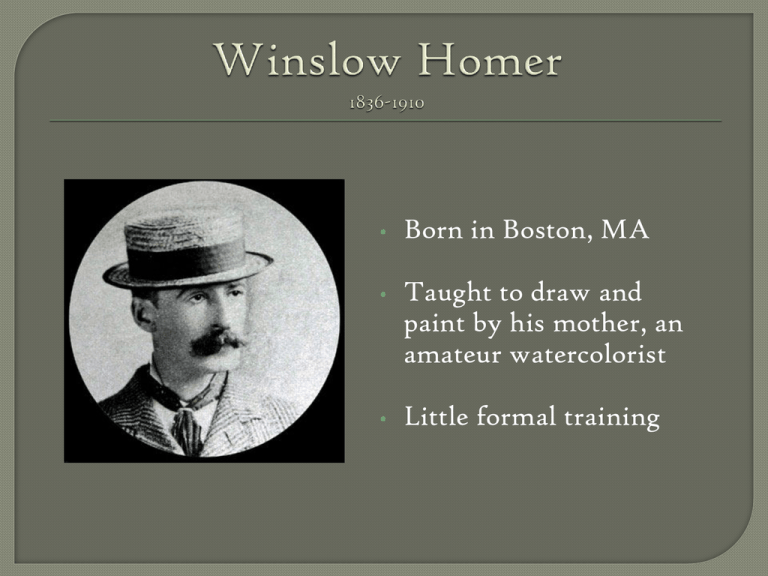
• Born in Boston, MA • Taught to draw and paint by his mother, an amateur watercolorist • Little formal training • Worked as an apprentice to a lithographer Disliked it greatly because he was just copying other people’s art • Later, became an illustrator At 21 yrs., joined Harper’s Weekly magazine • During Civil War, sent to the front as an artistcorrespondent for Harper’s The Army of the Potomac – A Sharp-Shooter on Picket Duty Home, Sweet Home (c. 1863) • His most famous painting from the Civil War – Prisoners from the Front • Homer lived in and visited many places during his lifetime • These places were represented in his work • Here, a fisherman’s family awaits his return Dad’s Coming (c. 1873) Gloucester, Massachusetts • Homer became best known for his “Maritime Art” • He was wonderful at capturing the many moods of the sea; incorporating drama, suspense and danger Breezing Up (A Fair Wind), 1873-1876 • Homer suddenly starting painting with watercolors in 1873. It had just became a “respectable” medium in the mid-1860’s Home liked that he could produce and sell them quickly, making more money • Favorite subjects in both his oil and watercolors Solitary women, children, nature The Sick Chicken (c. 1874) • In his early work, Homer often painted rural scenes and farm life The Milk Maid (c. 1878) Fresh Eggs (c. 1874) • Though he never married or had children of his own, Homer loved painting them in outdoor settings • Snap the Whip (1872) was one of his most famous works • You will see one-room schoolhouses, like the one in this piece, in other Homer paintings • In 1881-82, Homer spent 20 months in the fishing village of Cullercoats, England, on the North Sea • He loved painting the women and children there. Girl Carrying a Basket (1882) Mending the Nets (1882) Sparrow Hall (c. 1881-2) Incoming Tide (c. 1883) • In 1883, Homer moved permanently to Prouts Neck, Maine • He was a loner and enjoyed the isolation there “Mind your own business” was his favorite phrase • He loved showing the forces of nature and violent storms at sea • Homer’s paintings often seem like they are telling a story – perhaps in part because of his background as a journalist The Fog Warning (1885) •Homer would visit tropical locations such as Bahamas, Florida, Cuba & Bermuda to escape harsh winters in Maine. The Water Fan (c. 1898) •Homer often left white parts of the canvas exposed to give a sense of the brilliant atmosphere Salt Kettle, Bermuda (c. 1899) • Independent, a loner who never married or had children • Died in 1910 at his home in Prout’s Neck, Maine • Ranked as one of the world’s finest watercolorists • Considered one of the greatest American 19th Century artists • Best known for his paintings of the sea & his ability to show its many moods • Known for using the white of the paper for the lightest values “The Sun will not rise or set without my notice and thanks.” (Winslow Homer)


